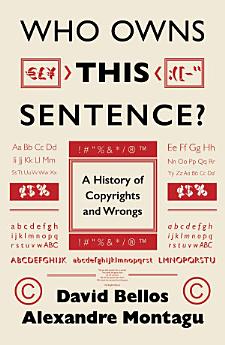Who Owns This Sentence?: A History of Copyrights and Wrongs
Jan 2024 · Hachette UK
Ebook
384
Pages
family_home
Eligible
info
reportRatings and reviews aren’t verified Learn More
About this ebook
Copyright is everywhere. Your smartphone incorporates thousands of items of intellectual property. Someone owns the reproduction rights to photographs of your dining table. At this very moment, battles are raging over copyright in the output of artificial intelligence programs. Not only books but wallpaper, computer programs and cuddly toys are now deemed to be intellectual properties - making copyright a labyrinthine construction of laws, covering almost all products of human creativity.
Copyright has its roots in eighteenth-century London, where it was first established to limit printers' control of books. Principled arguments against copyright arose from the start and nearly abolished it in the nineteenth century. But a handful of little-noticed changes in the late twentieth century concentrated ownership of immaterial goods into very few hands.
Who Owns This Sentence? is an often-humorous and always-enlightening cultural, legal, and global history of the idea that intangible things can be owned, and makes a persuasive case for seeing copyright as an engine of inequality in the twenty-first century.
Copyright has its roots in eighteenth-century London, where it was first established to limit printers' control of books. Principled arguments against copyright arose from the start and nearly abolished it in the nineteenth century. But a handful of little-noticed changes in the late twentieth century concentrated ownership of immaterial goods into very few hands.
Who Owns This Sentence? is an often-humorous and always-enlightening cultural, legal, and global history of the idea that intangible things can be owned, and makes a persuasive case for seeing copyright as an engine of inequality in the twenty-first century.
About the author
David Bellos is a writer, translator and the Meredith Howland Pyne Professor of French and Comparative Literature at Princeton University. His book, Is That a Fish in Your Ear? Translation and the Meaning of Everything has been translated into many languages, including Japanese and Farsi. He has won the IBM-France Translation Prize and the Goncourt Prize for Biography.
Alexandre Montagu is a practising lawyer and the founding partner of Montagu Law, which focuses on intellectual property law, international commercial transactions and new media commercial and corporate law. He has written many articles as well as two books, Intellectual Property: Money and Power in a New Era and The Riddle of the Sphinx.
Rate this ebook
Tell us what you think.
Reading information
Smartphones and tablets
Install the Google Play Books app for Android and iPad/iPhone. It syncs automatically with your account and allows you to read online or offline wherever you are.
Laptops and computers
You can listen to audiobooks purchased on Google Play using your computer's web browser.
eReaders and other devices
To read on e-ink devices like Kobo eReaders, you'll need to download a file and transfer it to your device. Follow the detailed Help Center instructions to transfer the files to supported eReaders.






